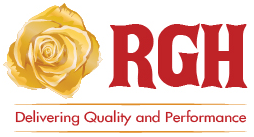The Only Hotel Development Strategy Guide You Will Ever Need
Hotel development is quite a layered process. By layered, what we mean is that the process is anything but straightforward. It involves a bunch of professionals working in harmony to go the whole hog while factoring in several other aspects including finances, construction, licensure, and market demands. All these aspects require one thing – coordination. The process is akin to any commercial real estate development entailing the following – a concrete idea, feasibility study, physical construction, commencement of operations, and asset management. Having said that, its not all the same. That’s because unlike other commercial properties, a hotel’s development process doesn’t end at construction or managing assets. Hotels cater to guests and they do so throughout the year, for numerous years.
The post-construction period is extremely crucial but the pre-launch period is what will predict the progress in future. How you place your brand/brands is an essential part of the hotel building anagram. Hence, we’ve made a list of 4 key strategies that will definitely aid in developing a hotel successfully:
Although it is beneficial to have several brands for one hotel, it is also important to ensure that they all stand for one hotel. In simple words, your brands shouldn’t conflict with each other. Guests should be able to identify who you are through all your brands even though these brands target different audiences. For example, Marriott has about 30 different brands. Some of them cater to business travelers, some cater to luxury travelers, and a few others are area/activity specific. Nonetheless, all of them clearly spell Marriott’s personality.
You must recognize your key brands in your brand portfolio and weed out the top rated hotel management companies to develop those brands. However, keep in mind that your team (hotel owner, stakeholders, consultants) should work in synergy with the brand development company.
Once you have identified the key regions where your brand requires presence, you must exhibit your brand using various tools like digital presentation, social media, special events with complimentary features, PR campaigns, and sponsorships. You can gain an edge over your competitors by conducting a corporate espionage or competitor analysis and identify their chinks in armor. To boot, you can showcase your high points by highlighting their weak spots while undertaking advertising campaigns.
You need to go one step further and rise above the hotel owner’s expectations as well. To do this, you must ensure a timely delivery of hotel development services, accurate project costs, a strict adherence to the timelines, and recommendation of laudable consultants. Speaking of consultants, did you know that most 5 star hotels need 27+ consultants on board? Yes, taking on the task of hotel development is THAT complex.
Each of these consultants will bring a different skill set with them and provide expert advice on various aspects. Its essential to choose consultants who will work as a team, focus on cost-effective methods, and conduct periodic meetings with the hotel owners as well as stakeholders. Moreover, these consultants will help to remove roadblocks and show the way forward to project commissioning.
You must assimilate a pre-opening team at least 8 months prior to opening your hotel. The pre-opening team will take care of the entire pre-opening checklist including PR, website & SEO development, revenue management strategies, sales, reservation systems, soft opening events, and staff recruitment. This will ensure adequate sales penetration even before the hotel opens for operations.
Conclusion:
Everything that goes into building a hotel sort of overlaps each other. When you focus on all the factors equally and it comes off the paper as planned is when you achieve the intended ascendancy. Therefore, there’s no one recipe for building an exemplary hotel development strategy that will ensure a boom. Nevertheless, if you engage in careful strategy planning keeping the above mentioned points in mind, it’ll surely go a long way in achieving eminence.

